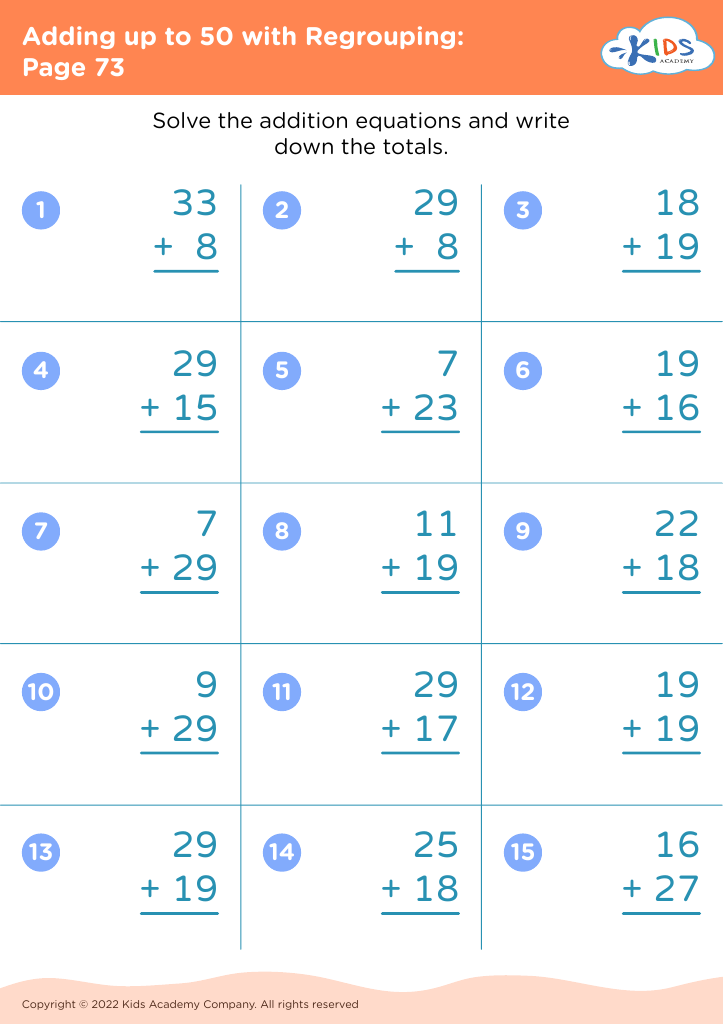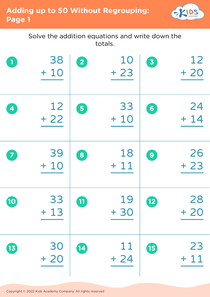Fine Motor Skills Adding up to 50 with Regrouping Worksheets for Ages 7-8
7 filtered results
-
From - To
Enhance your child’s fine motor skills while mastering math with our "Fine Motor Skills Adding up to 50 with Regrouping Worksheets" designed for ages 7-8! These engaging worksheets are crafted to help young learners tackle addition problems involving regrouping, all while developing their dexterity and coordination. As students practice solving equations, they also improve their pencil grip and hand-eye coordination through exciting activities. This dual-focus approach not only reinforces essential math concepts but also fosters crucial developmental skills. Perfect for classroom use or at-home learning, these worksheets provide a fun and effective way to merge fine motor practice with mathematical proficiency.
Fine motor skills and mathematical concepts like adding up to 50 with regrouping are crucial at ages 7-8, and both are interconnected in a child's cognitive development. Fine motor skills involve the small muscles in the hands and fingers, and they play a significant role in tasks such as writing, cutting, and manipulating objects. As children gain proficiency in these skills, they become more confident and capable in their overall learning journey.
When it comes to mastering addition, especially with regrouping, fine motor skills enable children to handle manipulatives, write numbers clearly, and organize their work. Missing the connection between the two could hinder a child's performance in math and damage their self-esteem. For instance, if a child's hands struggle with forming numbers or holding a pencil correctly, they may feel frustration during math lessons, ultimately impacting their willingness to engage with academic challenges.
Additionally, encouraging activities like drawing, crafting, or playing with building blocks can strengthen fine motor skills while simultaneously helping children visualize mathematical concepts like regrouping. This holistic approach to learning ensures that children develop not only their academic skills but also the confidence and dexterity to succeed in various aspects of life. Therefore, both parents and teachers should prioritize these skills collaboratively.


















